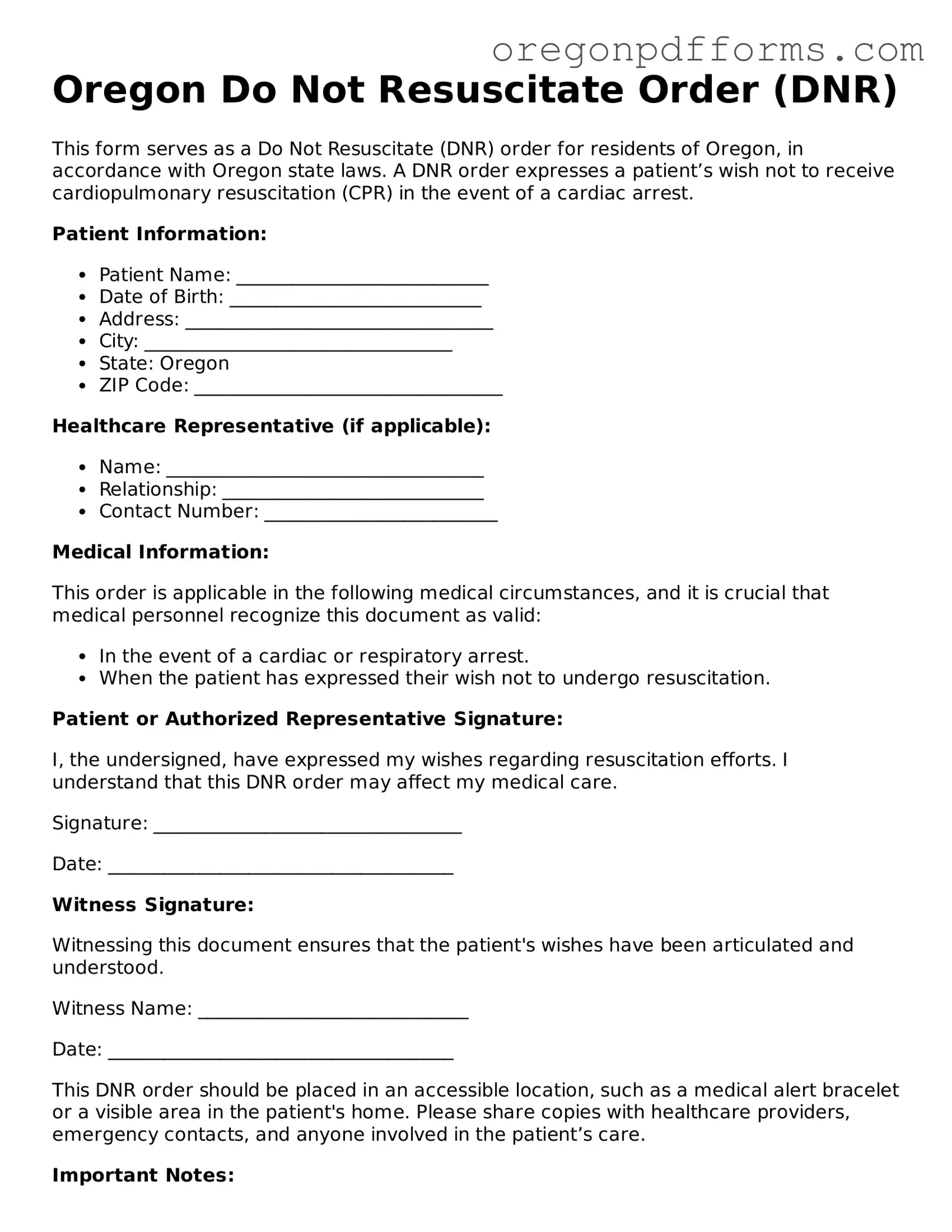Valid Do Not Resuscitate Order Document for Oregon
A Do Not Resuscitate (DNR) Order form in Oregon is a legal document that allows individuals to express their wishes regarding resuscitation efforts in the event of a medical emergency. This form is crucial for those who prefer to forgo life-saving measures, ensuring their choices are respected by medical personnel. Understanding how to properly complete and utilize this form can provide peace of mind for both patients and their loved ones.
Open My Do Not Resuscitate Order

Valid Do Not Resuscitate Order Document for Oregon
Open My Do Not Resuscitate Order

Open My Do Not Resuscitate Order
or
Get PDF
A few steps left to finish this form
Complete Do Not Resuscitate Order online with easy edits and saving.